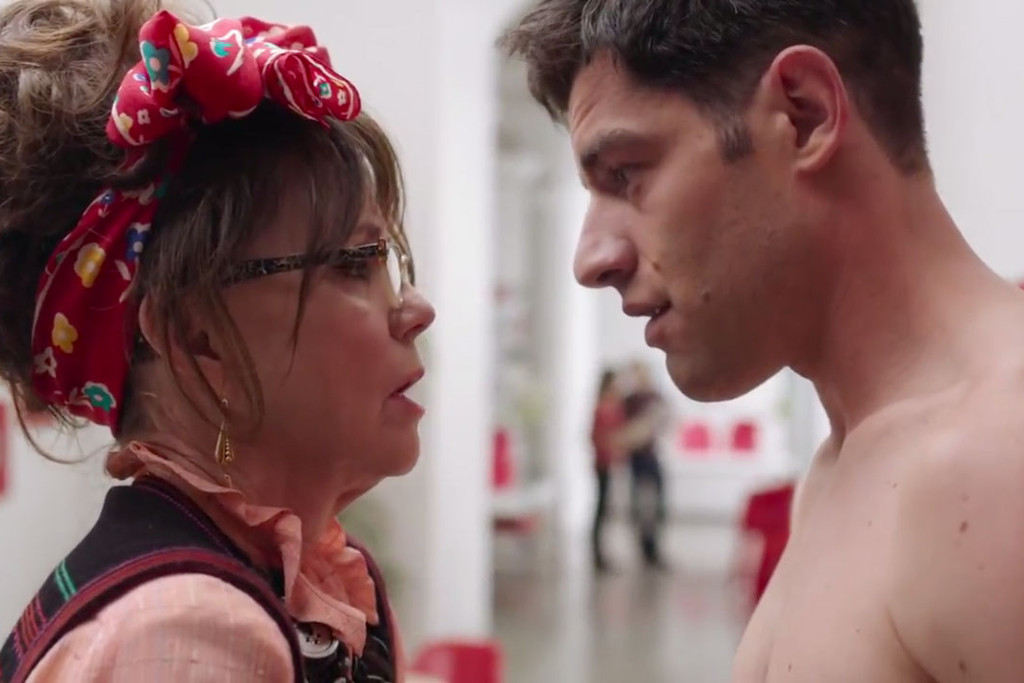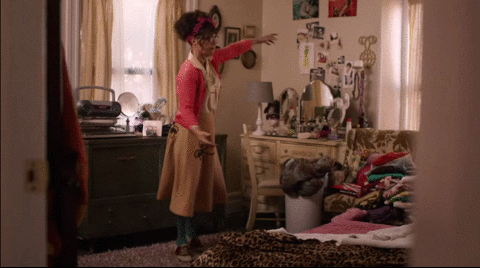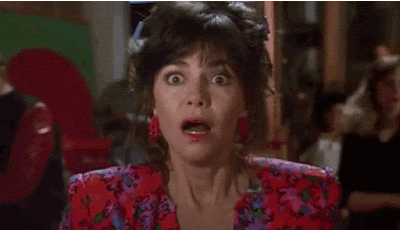‘Hello, My Name Is Doris’ Is A Surprisingly Earnest Stand For Weird (And Fuckable) Older Ladies
This film, about Sally Field trying to bang Schmidt, actually made me cry.

The main character in Michael Showalter’s (Wet Hot American Summer) latest film Hello, My Name Is Doris is what former Cosmopolitan editor Helen Gurley Brown would have called a mouseburger.

Kind of speaks for itself.
Sixty-something Doris Miller (Sally Field) is a shy data entry clerk who’s spent her life caring for her mother while her brother Todd (Stephen Root) pursued his dreams. Then, in a crowded elevator, John (New Girl’s Max Greenfield), the cute young art director at her workplace, takes a moment to straighten Doris’s cat-eye glasses. This casual kindness, this moment of seeing her, is enough to pitch Doris headlong into a raging crush on him.
After her friends — bolshie Ros (Tyne Daly) and glamorous Val (Caroline Aaron) — take her to a seminar run by a ridiculous personal development guru (Peter Gallagher), Doris is emboldened to pursue John romantically. With him and his hipster crowd, she finally feels playful, youthful and accepted.
So far, so quirky. But this film evokes something uneasy that cuts through the treacle. Showalter works in a grey area between celebrating Doris’s newfound zest and making her look pathetic. And Field, perfectly cast after a career of urgent likeability, deftly switches between broad comedy and disconcertingly dark pathos. The film is a bittersweet but hopeful tale of a woman who decides, late in life, to want more — that’s more rare than it sounds.
–
The Life-Changing Magic Of Not Tidying Up
It would be easy to dismiss this as a limp comedy about the similarities between eccentric old ladies and Williamsburg hipsters, especially because it leans on ~hip~ signifiers that feel just slightly out of date (pretentious indie-electro bands, queer knitting circles, artisanal foods). Costume designer Rebecca Gregg reinforces this, snap-freezing Doris in a desiccated Gidget girlishness that will be familiar to any Frankie reader (colourful tights and cardigans, beehive hairpieces, and scarves tied in giant Minnie Mouse bows). But through all this, it’s surprisingly affecting.
We first meet Doris at her mum’s funeral, where her brother and his unpleasant wife Cynthia (Bridesmaids’ Wendi McLendon-Covey) ambush her with a plan to sell the family home in Staten Island. They interpret the trove of keepsakes Doris has accumulated there as hoarding, and badger her to see Dr Edwards (Elizabeth Reaser), a therapist who specialises in house clearing.
You know what? I didn’t think Doris’s house was that bad. Cluttered, sure — but in a homey, interesting way, like an antiques shop. I identified with her optimism: she keeps things in anticipation of possible, if unlikely, future uses. For Doris, objects have emotionally charged auras — like the chewed pencil she steals from John, thrilling at owning something his mouth has touched.
That’s the difference between Doris and the Gen-Y kids with whom she ends up hanging out. Doris isn’t a consumer of ‘cool’ things who moves on once the novelty has worn off. Young people welcome her as they’d welcome any other novelty, but when Doris likes something — or someone — she holds on for good.
I cried during the scene in which Todd, Cynthia and Dr Edwards bail up Doris at home and begin callously seizing her possessions. Field is electric here: Doris reacts to the trio’s invasion with such vivid rage and distress that she almost seems to take on a new Pokémon form.
Showalter complicates the popular idea of hoarders as broken, traumatised and pitiable, by showing that cherishing can be generous. You don’t have to love only a few people when you can keep more in your heart. At the start of the film, Doris picks up hard rubbish, seeing value in other people’s discards. And by the end, she’s happy to gift things to her young co-workers (a fun, screwball pack who include Silicon Valley’s Kumail Nanjiani, Mad Men’s Rich Sommer and Orange Is The New Black’s Natasha Lyonne). They now recognise the value of the objects because they can see Doris as a fully realised person.
–
It’s Never Too Late To Come Of Age
Hollywood is notoriously squicky about the idea of a middle-aged woman daring to consider herself fuckable. Most films that feature couples with significantly older women tend to paint the women as predatory cougars and MILFs; as troubled free spirits who initiate boys into manhood; as downtrodden matrons who get their groove back; or as society ladies grifted by unscrupulous studs.
Doris isn’t really a ‘May-December romance’ like Harold and Maude. And she isn’t a superannuated Manic Pixie Dream Girl whose quirkiness reinvigorates John and teaches him life lessons. Her sexual agency is the film’s focus. Alone in bed, she fiercely whispers aloud the guru’s advice to turn “IMPOSSIBLE” into “I’M POSSIBLE”. One of the film’s biggest pleasures is also the ambiguously non-judgmental charm with which Max Greenfield plays John. Perhaps he’s just being nice to his co-worker… but perhaps Doris really could win his heart!
Importantly, Showalter doesn’t ridicule her for being an older woman with sexual urges in the way movies shame a lascivious cougar. Instead, Doris’s inexperience makes her excruciating in the same way teenagers are. It’s no accident that her friend’s 13-year-old granddaughter helps her stalk John on Facebook, and encourages her as the straight-talking Ros looks on disapprovingly. This is why this role is so perfect for Field — she’s famous for her ability to personify earnest gawkiness.

Unable to read John’s intentions, Doris is embarrassing. She tries silly teenage seduction tactics, like getting John to help her pump up the exercise ball she uses as an office chair. Showalter stages, Secret Life of Walter Mitty-style, several of Doris’s lush fantasies about John and both actors sell them beautifully.
Of course, her inexperience means Doris is cruising for a heart-bruising. But what I liked most about this film is that it never punishes her for simply wanting, but instead shows her that John is a real person, not just a fantasy. Her treatment of him has consequences.
Thankfully, the film resists cheesy resolutions. Doris doesn’t radically change her life, emerging like a butterfly from a chrysalis. Nor does she avenge herself on everyone who’s ever ignored her or treated her badly. But at the same time, she has a newfound dignity and sense of her own value. She is possible… and that might just be attractive.
–
Hello, My Name Is Doris is screening at Melbourne’s Cinema Nova now.
–
Mel Campbell is a freelance journalist and cultural critic. She blogs on style, history and culture at Footpath Zeitgeist and tweets at @incrediblemelk.